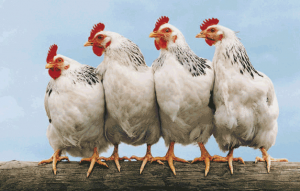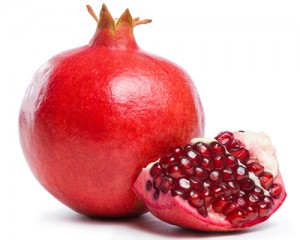Tradições de Ano Novo no Brazil – Brazilian New Year’s traditions Posted by carol on Dec 31, 2015 in Brazilian Profile, Culture, Customs, Entertainment, Learning, Vocabulary
New Year’s eve is all about celebrating, exchanging greetings, reflecting on the past and looking forward to the future. And, of course, popping champagne para dar boas-vindas (to welcome) the upcoming year with enthusiasm. Even though the general mood is of renewal and positivity, people honor the occasion differently across the globe.
In Brazil, the Ano Novo, also known as Réveillon – deriving from the French noun that means awakening – follows some traditions. So today’s post will be about showing you Brazilian customs for when the clock strikes twelve on December 31srt.
Fogos de artifício em Copacabana – Fireworks in Copacabana
Like the New Year’s ball drop event in Times Square, the fireworks launching in the Copacabana praia (beach) in Rio de Janeiro is the main attraction held in the country and is among the most memorable New Year’s celebrations internationally. Previously a religious party attended by few, nowadays thousands se réunem (gather) to watch the display that lasts about vinte (twenty) minutes. There is also an all-night concert featuring famous Brazilian musicians.
Vestir-se de branco – Dressing in white
A habit brought by the Candomblé religion – a faith of African origins, wearing white for the New Year’s festivities represents paz (peace) and purification for um novo começo (a new start) Though people typically wear white, the custom has extended to the point that each color communicates an intention, and people believe in using the right color to achieve a goal. White stands for peace, amarelo (yellow) for dinheiro (money)and wealth, vermelho (red)for passion and amor (love). Some even coordinate their outfits with their underwear for extra success!
Pular sete ondas – Jumping seven waves
Like wearing white, this habit was also brought by slaves and is part of a religious custom. According to the tradition, the act of jumping seven waves when the New Year hits abre caminhos (opens ways) and marks the transition with good energies. You can fazer pedidos (ask for wishes) while doing so. Mas cuidado (But be careful), it is believed that you are not supposed to dar as costas (turn your back)to the ocean after the ritual so as not to attract má-sorte (bad luck).
Oferendas para Iemanjá – Offerings to Iemanjá
Offering presentes (gifts) to Iemanjá, the goddess of the sea, is another habit associated with spirituality. The practice consists of paying homage to the rainha do mar (queen of the ocean) with gifts like flowers, sabonete (soap), velas (candles), jewels, espelhos (mirrors) and fruits. The offerings são colocados (are placed) in small boats and pushed towards the ocean as a symbolic act of se livrar (getting rid) of your troubles and afflictions and getting her blessing.
Hábitos alimentares – Eating Habits
Comer (Eating) special food is part of the New Year’s traditions in many cultures and they are closely associated with symbols of hope and good fortune:
Lentilha (Lentil): not only is it rich in protein, but also believed to trazer (bring)wealth and prosperity to the tables and lives of those who consume it during New Year’s. The dish is usually served with arroz (rice) but if your goal is having good luck, a spoonful of lentils should do trick.
Evitar aves (Avoid poultry): while celebrating on December 21srt, eating animals that scratch the ground backwards, like frango ou peru (chicken or turkey), is not advisable. This crença (belief) is because animals that do that symbolize moving backwards in life and may cause a setback in the year to come. So favor carnes (meats) that move forward, like pork or peixe (fish), to attract progress.
Romã (pomegranate): The pomegranate is a symbol of abundance and fertility, so on January 6th, a common simpatia (a kind of superstition) is to take sete (seven) seeds of the fruit and wrap it in papel branco (white paper). The small packages should be kept in your carteira (wallet) throughout the year and it will bring prosperity for the new cycle.
That’s it, so choose your colors and your meals wisely, pop open a bottle of champagne and Feliz Ano Novo! (Happy New Year!)

Build vocabulary, practice pronunciation, and more with Transparent Language Online. Available anytime, anywhere, on any device.











